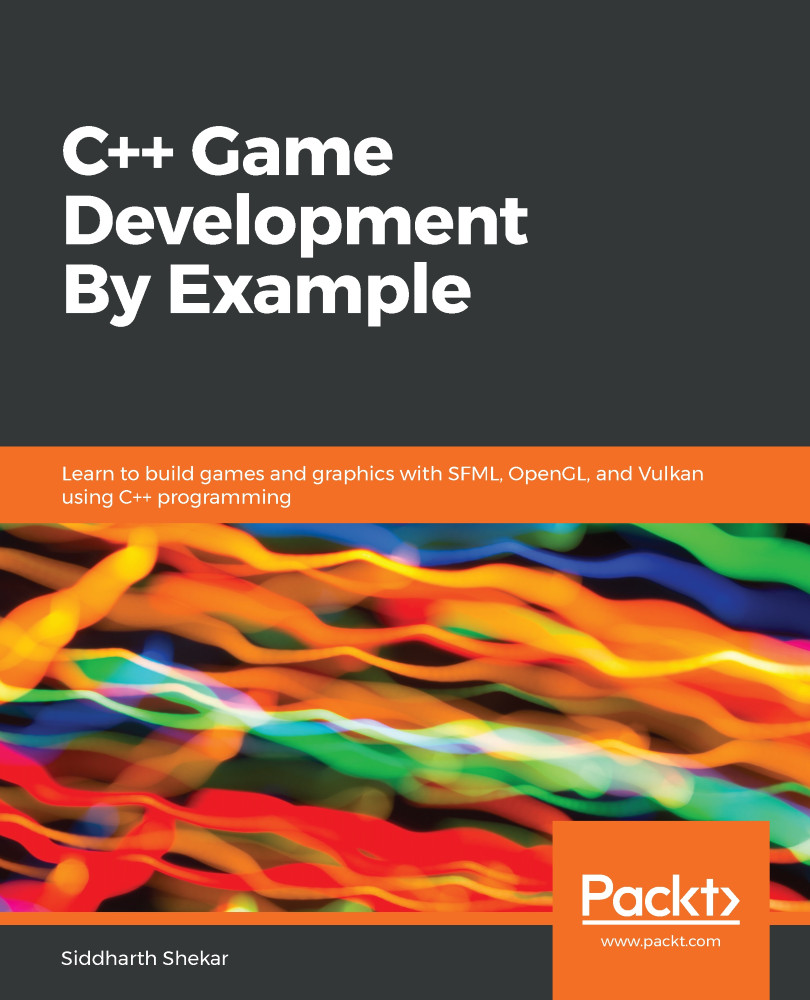Now that we are familiar with the basics, let's get started:
- Navigate to the SFML download page (https://www.sfml-dev.org/download.php):

- Select SFML 2.5.1. Alternatively, you can clone the repository and build the latest version using CMake.
- Download either the 32-bit or 64-bit version (depending on your OS) for Visual Studio 2017.
Although we are going to be developing the game for Windows, you can download SFML for Linux or macOS from the same web page.
In the downloaded ZIP file, you will see the following directories:

These directories can be defined as follows:
- bin: This contains all the dynamic link libraries (DLLs) that are required for running all the SFML modules. This has a .dll file, which contains the debug and release versions. The debug version has a -d suffix at the end of the file. Files that don&apos...



































































